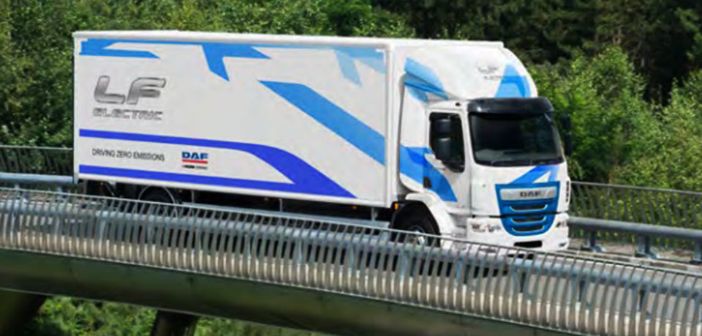A collaborative project focusing on producing a lightweight, fire-safe battery enclosure for zero-emission trucks, has been given the green light by Innovate UK.
The partnership has secured £183,000 of funding from the UK Department for Transport under a scheme aimed at boosting the country’s transition to zero emission road freight.
The nine-month project will be driven by Composites Evolution in collaboration with the University of Wolverhampton’s School of Engineering, MEP Technologies and Carr Reinforcements, and aims to develop a new high-temperature composite material suitable for large battery enclosures for electric freight vehicles.
Brendon Weager, technical director at Composites Evolution, said: “Freight accounts for around 20% of road vehicle emissions so there is substantial interest in switching to zero-emission trucks to help meet the UK’s target of net zero carbon by 2050. However, these trucks will need large, heavy batteries to provide sufficient range.
“Lithium-ion batteries present a fire hazard in the event of a thermal runaway caused, for example, by overheating, short-circuits, impacts or collisions. Therefore, electric trucks with large lithium-ion batteries present a potential risk of severe fire and injury, particularly when in urban areas, and/or carrying hazardous cargo.
“Current lightweight solutions struggle to withstand the high temperatures of such fires. This project will develop a new lightweight high-temperature composite material suitable for large battery enclosures. It will also prototype a battery module for an electric/hybrid truck with the aim being to develop a pack that is significantly lighter than current solutions whilst remaining fire-safe.”
The novel battery module design will incorporate new lightweight, high-power cells, embedded cooling tubes and electronics, and high C-rate capability, making it suitable for large battery systems in electric delivery trucks or hybrid powertrain systems.
The composite will be impact resistant – protecting battery cells from damage, electrically insulating – reducing the risk of electric shock from large, high-voltage battery packs, vibration absorbing – reducing the risk of damage to electronics, corrosion-resistant and have low embodied CO2.
What’s more, the University of Wolverhampton has investigated a range of candidate materials for truck battery boxes and has identified a novel composite with a 750°C service temperature.





